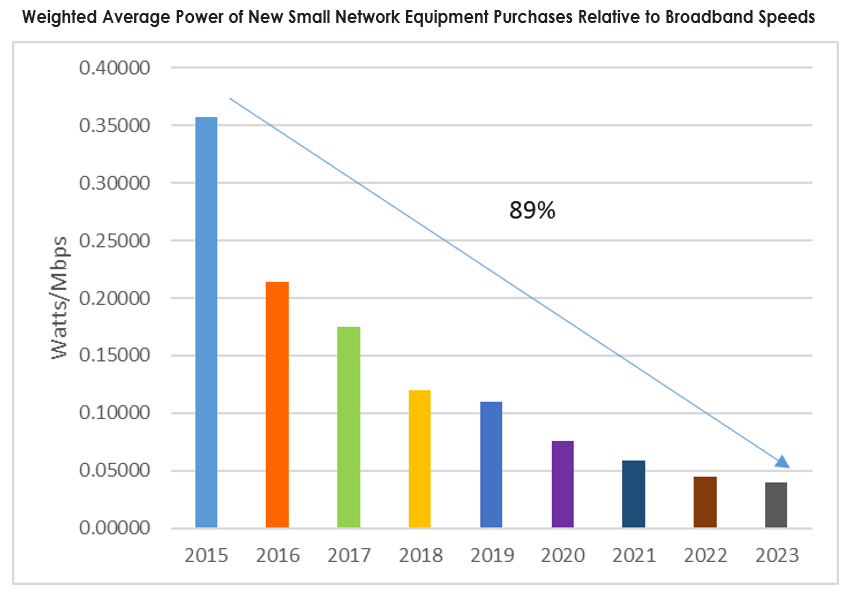The nation’s leading internet, cable, satellite, and telco service providers and associated equipment manufacturers continue to score significant energy savings for consumers under two award-winning voluntary agreements developed with energy efficiency advocates and supported by the Consumer Technology Association (CTA)®, NCTA – The Internet & Television Association, and CableLabs, according to two new independent audit reports issued today by D+R International, Ltd.
Under the first program for video services, national set-top box annual energy consumption has been slashed by more than two-thirds since 2012, saving consumers more than $18 billion and avoiding more than 93 million metric tons of CO2 emissions, according to the report. The decline in CO2 emissions is roughly equivalent to removing 21.9 million cars from the nation’s roads for a year.

Under the second program, the report found that the weighted average power of modems, routers and other home Internet access equipment decreased by 89% relative to broadband speed since 2015.

"The voluntary agreements demonstrate the long-time commitment from the tech industry to improve energy efficiency, reducing energy costs for consumers,” said Doug Johnson, vice president, emerging technology policy, CTA. “With the increased demand for connected devices, service providers and manufacturers continue to innovate, introducing new and improved features, while promoting greater energy savings.”
“The cable industry is proud of its decade-long track record of success through the voluntary agreements in delivering energy and cost savings to our customers and reducing the carbon footprint of our services,” said Russ Hanser, Deputy Chief Legal Officer of NCTA.
These savings were achieved through commitments to meet energy efficiency levels approved by the program’s energy efficiency advocates: the American Council for an Energy-Efficient Economy and the Natural Resources Defense Council for set-top boxes, and Pacific Gas & Electric for internet devices.
The participants of the voluntary agreements include:
Service providers: Altice USA, AT&T/DIRECTV, Charter, Comcast, Cox, DISH, Frontier, and Verizon.
Manufacturers: Actiontec, ASUS, CommScope, eero, Google, Linksys, Netgear, Plume, Sagemcom, TP-Link, Vantiva, and Ubee Interactive.
Under the agreements, the participants commit that at least 90% of their annual new set-top box or small network equipment purchases will meet energy efficiency levels. In 2023, 99.7% of new set-top boxes and 98.6% of new home internet devices met these efficiency levels, with all participants meeting the 90% commitment individually.
Three-fourths (75%) of new set-top boxes purchased in 2023 were Internet Protocol (IP) devices that can access both live and recorded content from the service provider networks rather than Digital Video Recorders (DVRs) which save recorded content in the home. The audit report found that the weighted average power use of these new “IP non-DVR” set-top boxes is only 24.3 kWh/year, in sharp contrast to the estimated 267 kWh/year consumed by DVRs in 2012 when the set-top box voluntary agreement was established. Meanwhile, home internet devices have effectively managed their power consumption even when accounting for an eightfold increase in average internet speeds since the start of the program.
More information about the voluntary agreements and the industry’s energy efficiency efforts is available at www.energy-efficiency.us.